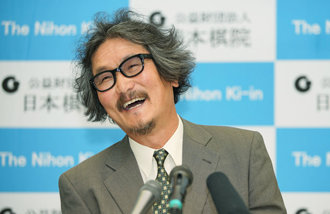[Editorial] KORUS FTA Outweighs North-South Summit Talks
[Editorial] KORUS FTA Outweighs North-South Summit Talks
Posted March. 13, 2007 03:16,
Cheong Wa Dae repeatedly denied the supposed dispatch of special envoys to the North for the North-South summit talks either before or after the visit of Koreas former prime minister Lee Hae-chan (who is also the presidential advisor) to North Korea.
Uri Party Representative Lee Hwa-young, who accompanied the former prime minister, said, Exchanging views with the North on political affairs, including summit talks more or less reflects that there must have been an implicit connection with the president to a great extent. Cheong Wa Daes continuous denial despite the fact that the main stakeholder in the summit talks is the president remains obscure.
If the North-South summit talks are discussed behind the scenes or off the record, the public is likely to express distrust. The moral would be for Mr. Lee to clearly disclose the purpose of the visit to the North. Once again, the North would demand economic assistance in exchange for agreeing to hold the inter-Korea talks, and the corresponding burden falls on the shoulders of 48 million. Nevertheless the government acts as if it is none of the peoples business to know, as they are only ones likely to pay the price.
Such Cheong Wa Dae and ruling partys manipulative ploys in aid of the North-South summit talks are not a far cry from their miserable status quo. Presidential candidates of the Grand National Party (GNP) enjoy high support ratings while the ruling camp has completely lost votes. No wonder why they want to turn it around with the summit talks. True, the word, peace force, is full of hype and lies, but they probably want the slogan as a means to form an anti-GNP new political party and prevail over major issues. However, even if they succeed in boosting the peaceful ambience on the Korean peninsular via the summit talks, unless they completely abolish the North Korean nuclear weapons of the past, present and future, the public will have no choice but to pay the price of both peaceful events and fear over the Norths nuclear power. Inter-Korean relations, including the bilateral summit talks, ought to have their direction and speed adjusted within the framework of the six-party talks aiming for abolishing North Koreas nuclear weapons.
Former Prime Minister Lee said, We proposed a measure for South and North Korea to co-host the Winter Olympic Games, and the North showed a positive attitude to it. However, Gangwon Province governor Kim Jin-sun said, We received a letter of agreement for Pyeongchang to host the games last November on the premise of not co-hosting them. Former Prime Minister Lee had never discussed it with Gangwon Province prior to his North Korea visit.
It would be a better idea for President Roh Moo-hyun to focus on settling the Korea-U.S. Free Trade Agreement (FTA), which is nearing its last negotiation stages, instead of the North-South summit talks where the people have more to lose than gain. There is not enough time before April 2, the negotiation deadline agreed upon between Korea and the U.S., and there is much opposition from the Korean Confederation of Trade Unions and farmers. There is already too much work to be done based on complementary measures at home and to convince opponents of the benefits of the FTA agreement.
Unlike the North-South summit talks that are constantly raising doubts, the Korea-U.S. FTA, if successful, would rank as the most outstanding achievement of President Roh. He should pin all his hopes on it.







